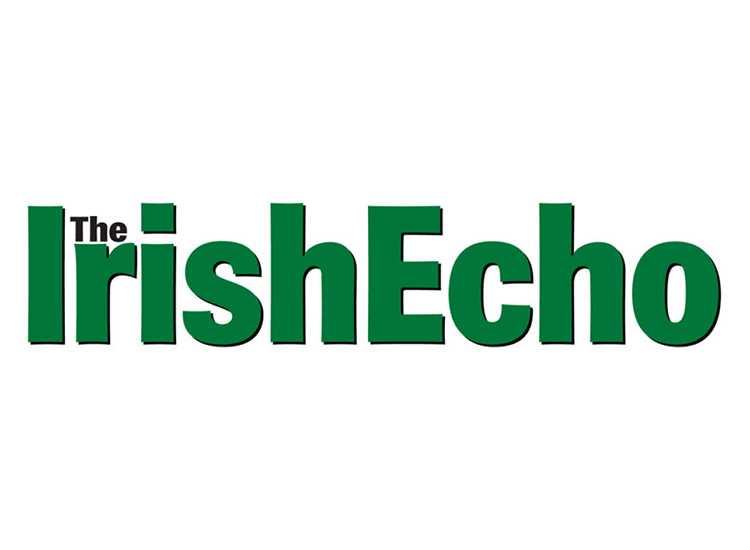A Norwegian Air passenger jet
By Ray O’Hanlon
Norwegian Air international has been cleared by U.S. aviation authorities to fly from Boston to cork for one way fares not much higher than a cab fare from JFK to Manhattan.
NAI, a subsidiary of Norwegian Air, is planning additional services later on linking New York and Cork.
The long anticipated news of the basement level transatlantic link broke last Friday.
Even as it was heading for the headlines, Taoiseach Enda Kenny announced the decision by Washington at a reception in his honor at the Irish Consulate in Manhattan.
The room broke into applause.
While Ryanair has been linked, on and off, to budget fares across the Atlantic for a number of years, the two airlines that are actually laying down firm plans have been Scandinavian, Norwegian and Icelandic carrier, WOW.
NAI’s service from Boston to Cork is expected to begin sometime in 2017.
For three years, according to an Irish independent report, the U.S. Department of Transportation has been sitting on an application from NAI to secure a foreign carrier permit that will allow it to operate between the EU and the U.S.
The DOT, according to the report, said in April that it intended to grant the permit, but it had not been issued. It was widely expected that the DOT would wait until a new administration was in the White House before any final decision was made.
“The delay invoked the ire of the European Commission, which has said that wider trade agreements between the U.S. and the EU could be threatened,” stated the report.
And it added: “The NAI application had been opposed by powerful U.S. aviation unions, who claimed that granting NAI a licence to operate between the EU and America would eventually result in tens of thousands of U.S. aviation jobs being lost – claims that NAI and its parent had denied.
In a statement, the DOT described the NAI case as being “among the most novel and complex” it has ever undertak
It stated: “We have taken the necessary amount of time to review and consider the comments from a wide range of stakeholders.
“Regardless of our appreciation of the public policy arguments raised by opponents, we have been advised that the law and our bilateral obligations leave us no avenue to reject this application. Therefore, we have decided to finalize our tentative decision to grant NAI’s request for a foreign air carrier permit.”
In granting a permit to NAI, the U.S. DOT, added the Independent report, conceded that opponents had raised a number of “significant concerns regarding the applicant's potential hiring and employment practices affecting its operations in U.S. markets.”
“In reaching our decision to grant NAI's permit, we have taken into account the totality of the record regarding its application, including those changes to its hiring and employment practices that it has offered as a direct result of the difficult issues that have been raised during the course of this proceeding,” DOT stated.
“We anticipate that they will be implemented, consistently with applicable laws.”
“Opponents have also raised another novel and important argument that goes directly to a central legal feature of the Agreement. By arguing that NAI represents a “flag of convenience,” opponents lose sight of this key feature of the Agreement: that under the concept of a “Community airline,” any carrier may fly under the flag of any European Union country, as well as Norway or Iceland, as long as it is satisfactorily owned and controlled by citizens of those countries.”
Regardless of the words from DOT, legal action against the granting of permission has not been ruled out by some unions.
But for now the service likes like a go and it has been welcomed by Irish Foreign Minister Charlie Flanagan.
Flanagan said: “The government strongly supports the Open Skies policy and this new travel option for travelers. I raised this application with the U.S. authorities on a number of occasions, including with Secretary of State, Mr. John Kerry, in Tipperary on 30 October last.
“This new route will strengthen Ireland’s links with Boston and New England, and represents a further significant boost to Cork Airport and the southern region. I look forward to NAI flights commencing between Cork and Boston at an early date.
“I also commend the commitment of Ireland’s Ambassador to the United States – Anne Anderson – and her embassy colleagues, who worked assiduously in support of the granting of this license. I am delighted to see that all of our efforts have borne fruit.”
Norwegian Air Group, according to a statement from Minister Flanagan’s department, is the third largest low-cost airline in Europe, behind Ryanair and Easyjet, and the ninth largest European airline overall.
In 2013 the Group applied for an Irish airline license and certificate for a subsidiary Irish airline called Norwegian Air International.
Norway is fully integrated into the Single European Aviation Market and under single market rules a Norwegian-owned company can apply to set up an airline in any EU Member State.
“In February 2014, NAI was granted an Irish Air Operator’s Certificate by the Irish Aviation Authority and an Irish Air Carriers Operating License by the Commission for Aviation Regulation.
In order to operate to the U.S., non-US airlines require a Foreign Air Carrier permit from the U.S. Department of Transportation. NAI applied to the DOT for a permit in December 2013.”
That permit has now been granted.








